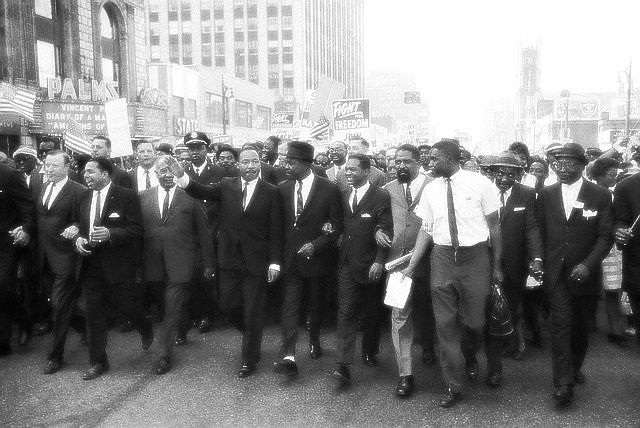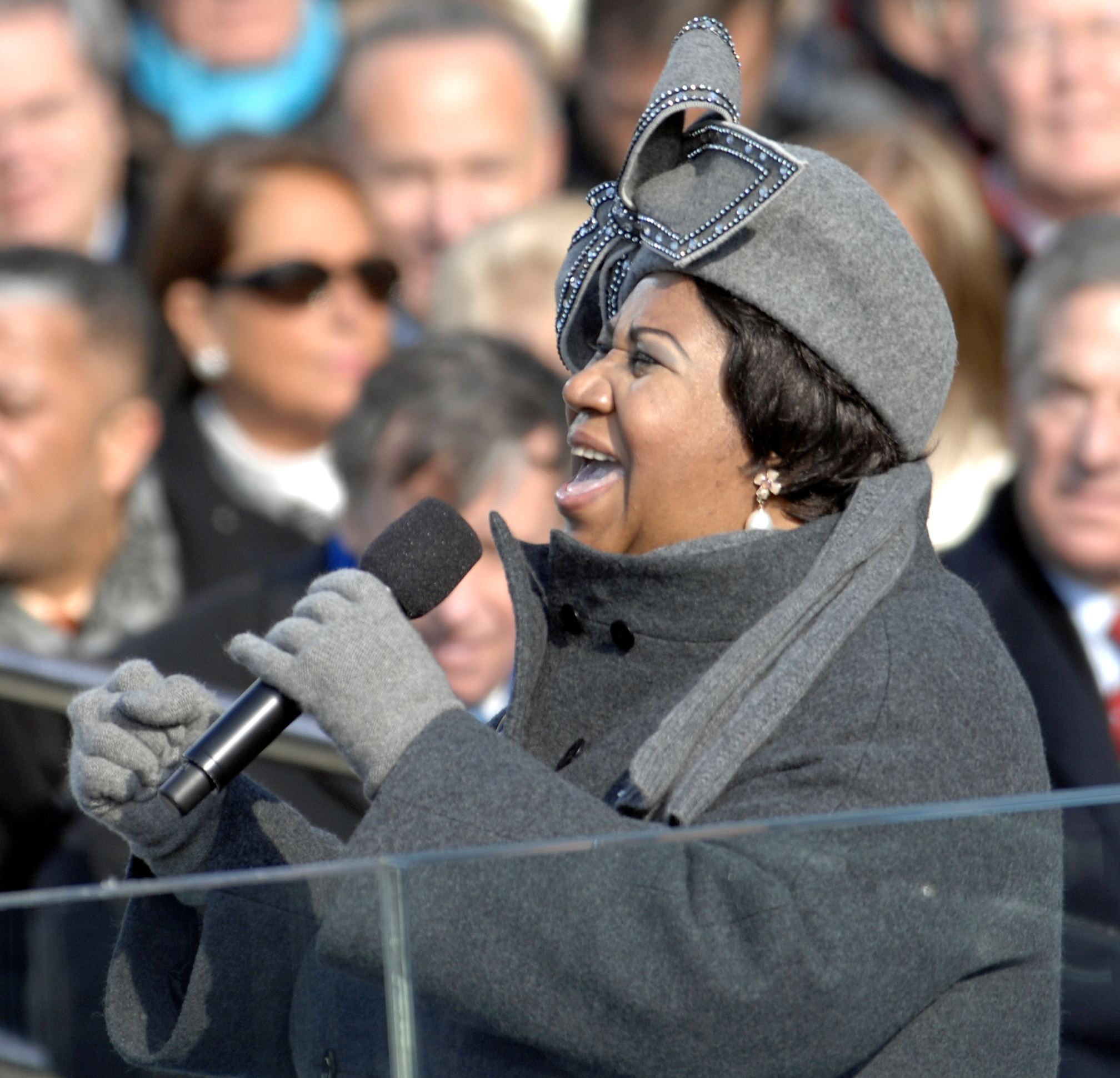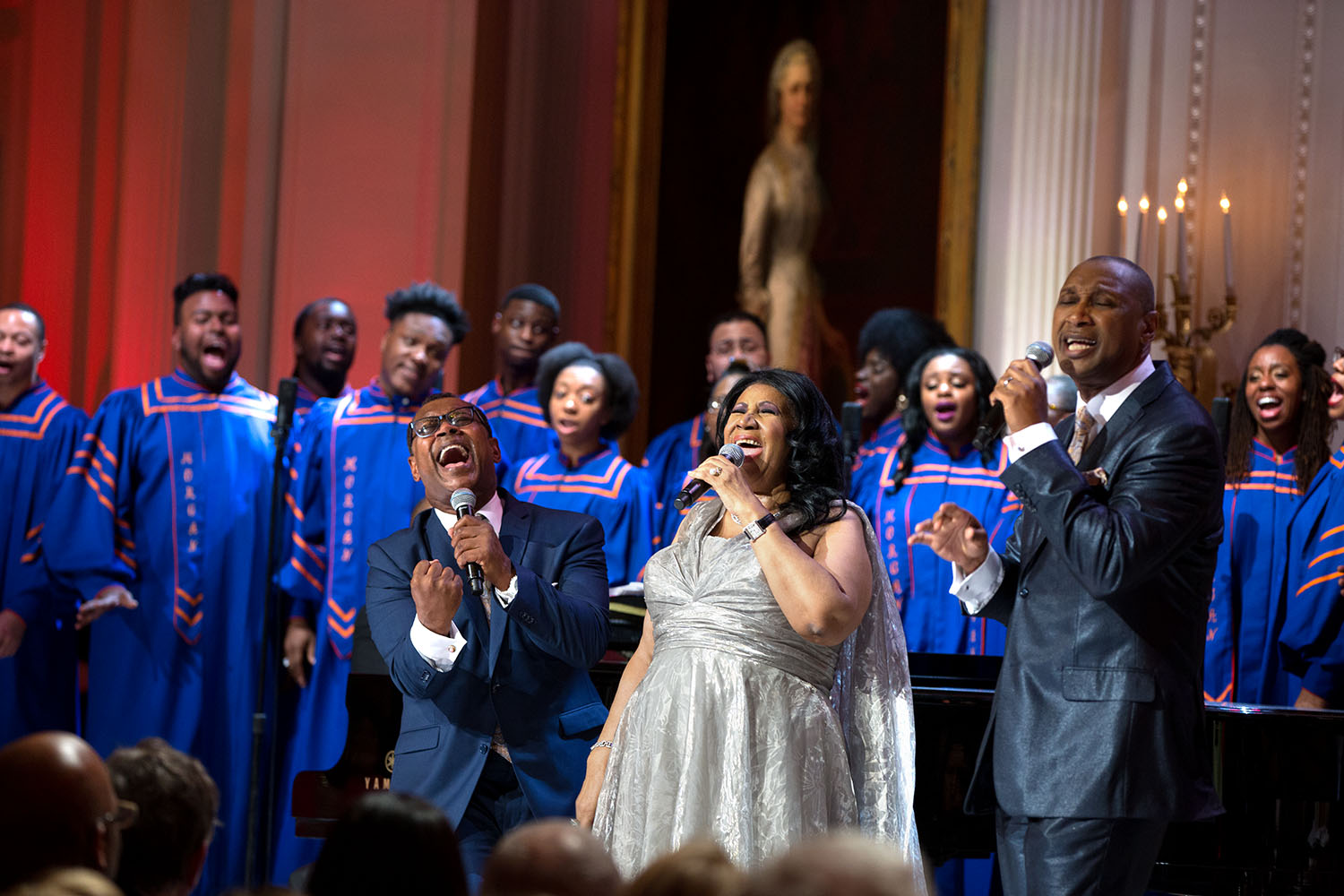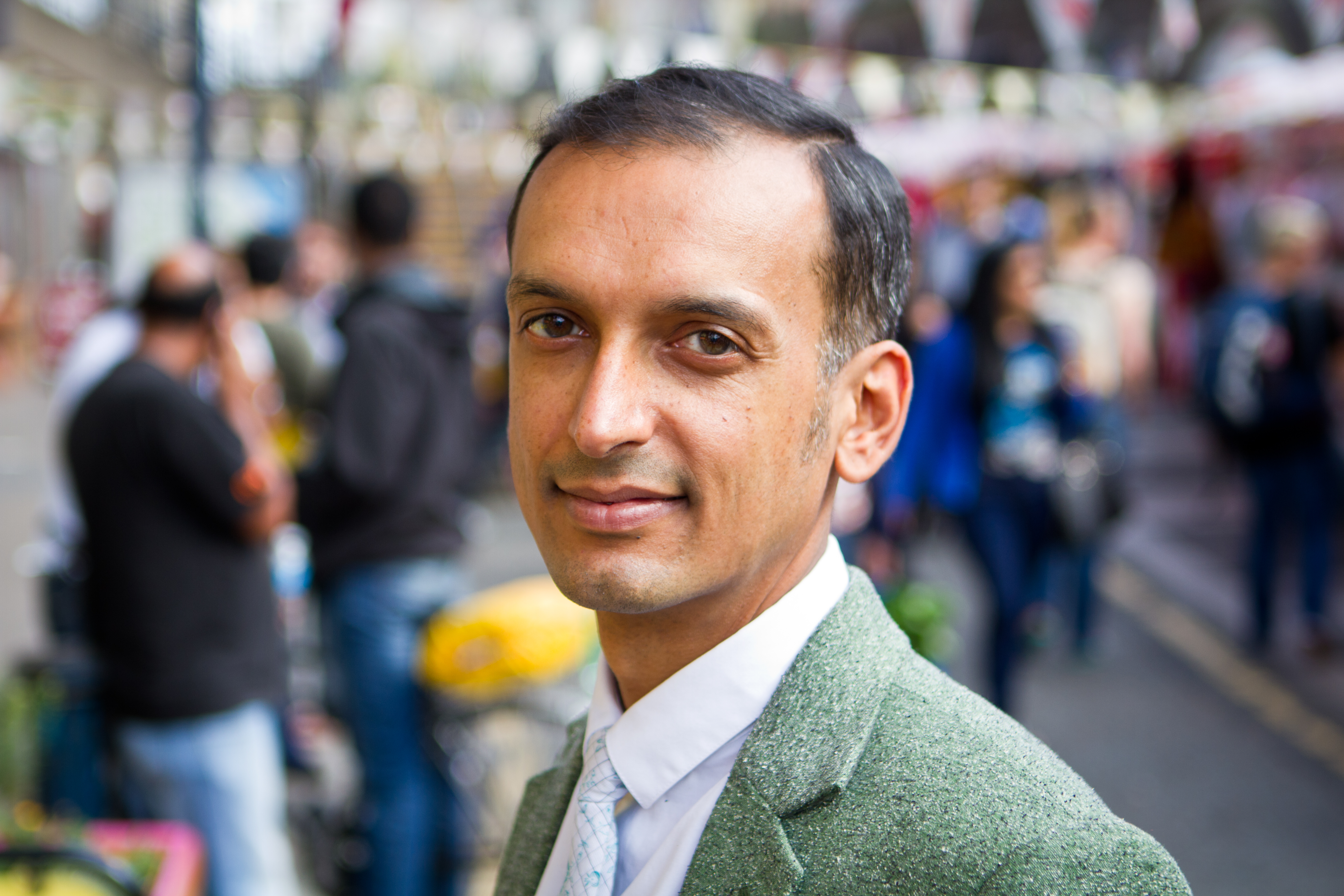Aretha Franklin was born on 25 March 1942 in Memphis, Tennessee, when racial segregation was in full swing.
Repressive legislation enforced the segregation of African Americans from white Americans in all public places, including schools and public transport. Relationships between different races were illegal.
In 1946, Aretha’s father, Clarence LaVaughn Franklin, a Baptist Minister, moved the family north to Detroit, Michigan.
Clarence was a leading civil rights activist, and Reverend Martin Luther King Jr. was a regular visitor to the Franklin family home.
Steeped In The Civil Rights Movement

Image via Andrew McFarlane / Flicker
On 23 June 1963, Clarence organised the Detroit Walk to Freedom – the largest civil rights demonstration in America at that time. Protesters demanded equality for African Americans in every aspect of life, including education, housing, public services and voting.
Martin Luther King was one of the 125,000 who joined the Detroit Walk to Freedom and delivered an early incarnation of the historic ‘I Have A Dream’ speech that he would deliver in August 1963 when 250,000 people marched on Washington.
In 1967, Aretha released arguably her most well known song, a cover of Otis Redding’s Respect. Respect became one of the defining anthems for the civil rights movement, and was also embraced as a women’s rights anthem, with its unflinching demand: ‘R-E-S-P-E-C-T’.
Following Martin Luther King Junior’s assassination in Memphis, Tennessee in April 1968, the passing of the Civil Rights Act in 1968, marked the end of a centuries-long struggle for African Americans to be granted equal rights as fully fledged citizens in the eyes of the law.
One Of The Strongest Supporters Of The Civil Rights Movement

Image via Wikimedia
Aretha Franklin’s steadfast commitment to the civil rights movement can be seen in her singing at the funeral of Martin Luther King Junior, offering to post $250,000 bail following the arrest of civil rights activist Angela Davis, and in her refusal to play to segregated audiences.
Franklin told biographer David Ritz: “Daddy had been preaching black pride for decades and we as a people had rediscovered how beautiful black truly was and were echoing, ‘Say it loud, I’m black, and I’m proud.’”
Her music gave us a greater sense of determination to never give up or give in, and to keep the faith.
– Congressman John Lewis
Congressman and civil rights activist John Lewis, a key figure in the bloody Selma marches that were integral in securing the Voting Rights Act in 1965, yesterday declared Franklin had a “lifelong, unwavering commitment to civil rights and was one of the strongest supporters of the movement.”
Lewis continued, “her music gave us a greater sense of determination to never give up or give in, and to keep the faith.”
For a singer who was so integral to the civil rights movement to perform at Barack Obama’s inauguration, to the highest office of the United States of America in 2009, was a deeply moving and symbolic moment.
Last night, the former US President paid tribute to the singer and pianist who has left an indelible mark: “Aretha helped define the American experience. In her voice, we could feel our history, all of it and in every shade — our power and our pain, our darkness and our light, our quest for redemption and our hard-won respect. May the Queen of Soul rest in eternal peace.”







